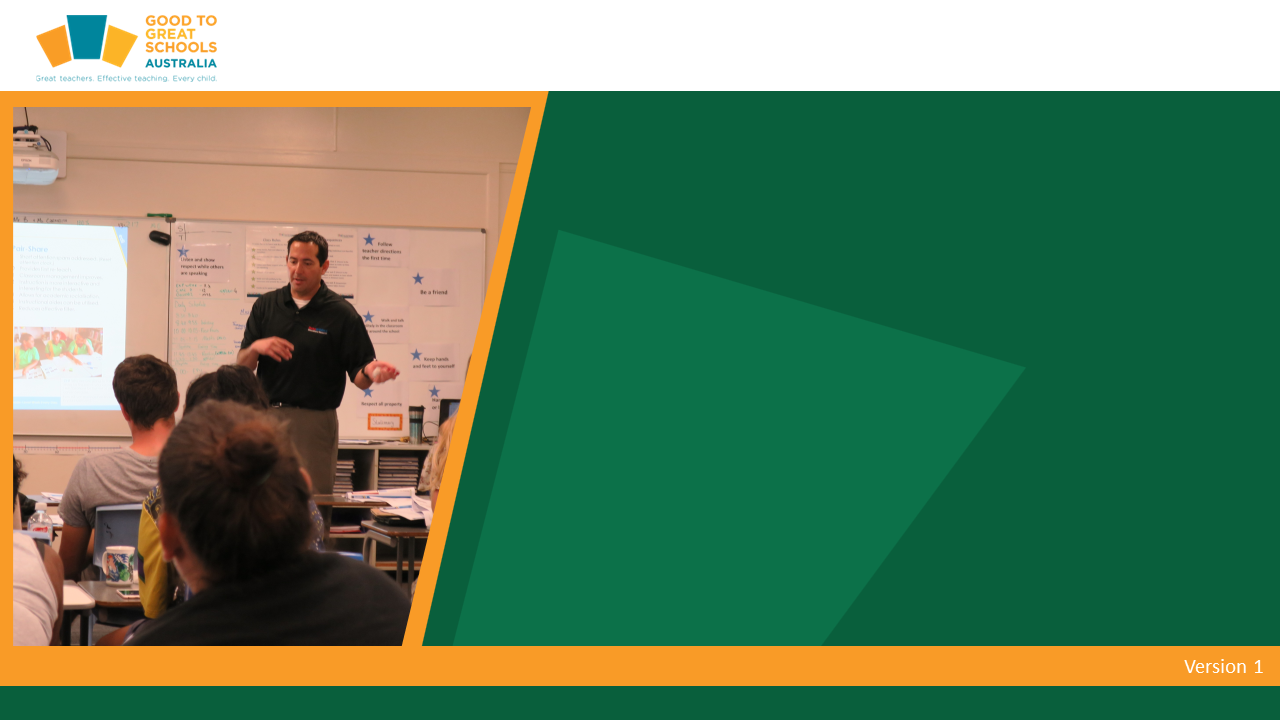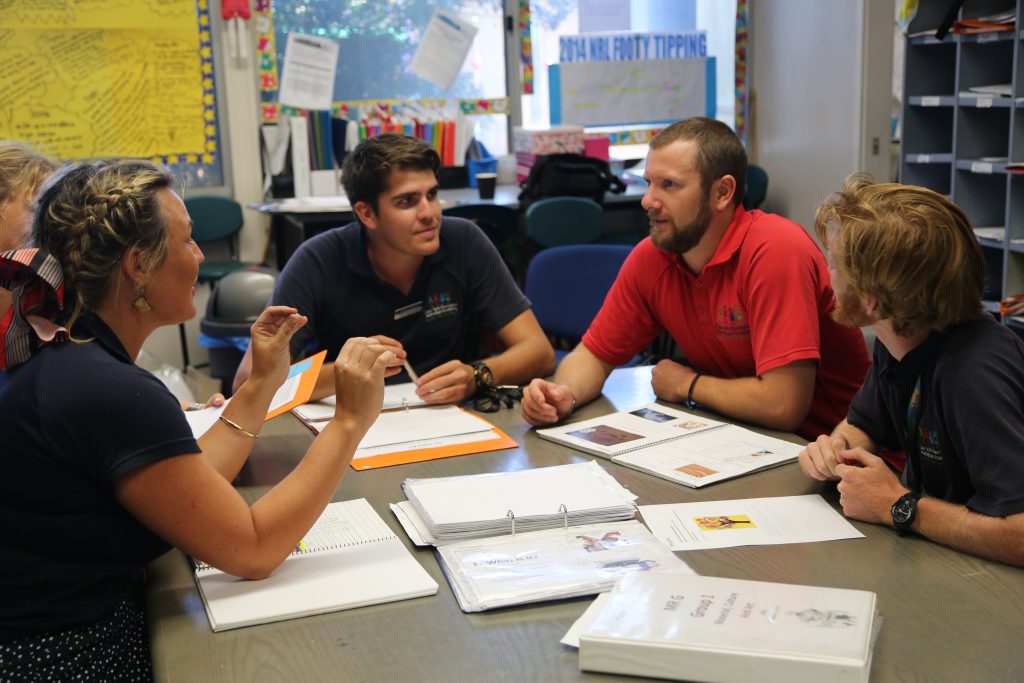Practice Use Evidence to Discuss Successes and Challenges with Peer Schools
-
Module Introduction2 Topics
-
Delivered With Fidelity15 Topics|2 Tests
-
Cover
-
Module Objective
-
What Happens when Use Evidence to Discuss Successes and Challenges with Peer Schools is Delivered with Fidelity
-
How to Use Evidence to Discuss Successes and Challenges with Peer Schools
-
Use Evidence to Discuss Successes and Challenges with Peer Schools: Scenario
-
Use Data to Make Informed Decisions
-
Video: How Teachers Use Student Data to Improve their Own Teaching Practice
-
The School Team Celebrate Positive Outcomes
-
The School Team Celebrates Positive Outcomes: Scenario
-
School Team Builds a Culture of Collaboration Around Continuous Improvement
-
School Team Builds a Culture of Collaboration Around Continuous Improvement: Scenario
-
The School Team Participates in Collegial Conversations
-
Video: Importance of Collegial Conversations
-
Check Your Understanding
-
Test Your Understanding
-
Cover
-
Not Delivered With Fidelity12 Topics|2 Tests
-
Cover
-
What Happens When School Teams are not Using Evidence to Discuss Successes and Challenges with Peer Schools with Fidelity
-
Team Members are Unable to Use Data to Make Informed Decisions
-
Team Members are Unable to Use Data to Make Informed Decisions: Scenario
-
Unable to Celebrate Positive Outcomes
-
Unable to Celebrate Positive Outcomes: Scenario
-
The School Team does not Build a Culture of Collaboration and Continuous Improvement
-
The School Team does not Build a Culture of Collaboration and Continuous Improvement: Scenario
-
The School Team does not Participate in Collegial Conversations
-
The School Team Does Not Participate in Collegial Conversations: Scenario
-
Check Your Understanding
-
Test Your Understanding
-
Cover
-
Barriers That Impede Fidelity9 Topics|2 Tests
-
Cover
-
Barriers that Impeded Using Evidence to Discuss Success and Challenges with Peer Schools with Fidelity
-
Using Deductive Logic to Identify the Cause of the Barrier
-
Not Knowing Why Using Evidence to Discuss Successes and Challenges is Important
-
Not Knowing How to Use Evidence to Discuss Successes and Challenges with Peer Schools
-
Allocated to Unrelated Tasks
-
Staff Absences or Shortages
-
Check Your Understanding
-
Test Your Understanding
-
Cover
-
Removing Barriers That Impede Fidelity12 Topics|2 Tests
-
Cover
-
Ways to Tackle the Barriers so Use Evidence to Discuss Successes and Challenges with Peer Schools is Delivered with Fidelity
-
Learn Why Using Evidence to Discuss Successes and Challenges with Peer Schools is Important
-
Learning Why Using Evidence to Discuss Successes and Challenges with Peer Schools Process
-
Learn How to Use Evidence to Discuss Successes and Challenges with Peer Schools
-
Learning How to Use Evidence to Discuss Successes and Challenges with Peer Schools
-
Prioritising Professional Learning
-
Learning How to Prioritise Professional Learning
-
Address Staff Absences or Shortages
-
Learn How to Address Staff Absences or Shortages
-
Check Your Understanding
-
Test Your Understanding
-
Cover
-
Module Completion Survey1 Topic
Participants 11
Use Evidence to Discuss Successes and Challenges with Peer Schools: Scenario
Kimberly December 25, 2023

Use Evidence to Discuss Successes and Challenges with Peer Schools: Scenario
Principal Dan is the director of a school that has been an effective teaching school for five years. Dan is interested in sharpening teacher and coach practice through collaboration with another effective teaching school in their area. Dan collaborates with Principal Sandy at another effective teaching school. They set a schedule for three peer conversations to occur in the autumn, winter, and spring, and then set agendas for each meeting.

At Dan’s school, the instruction coaches work with teachers to prepare them to use evidence to identify successes and challenges. Using classroom mastery test data, standardised test data, and observation data, the third-grade team identifies student fluency and vocabulary as areas of strength and success, and teaching students non-fiction comprehension as a challenge.
At the first school professional conversation with their peer school, Dan shares his school’s evidence-based successes and challenges. Then each team has a chance to collaborate with peers. The third-grade team shares their successes and challenges with their peers. They have time to ask for feedback and get ideas, which the team lead notes. When they return to their campus, the team and Dan are energised and ready to start implementing their new ideas.

